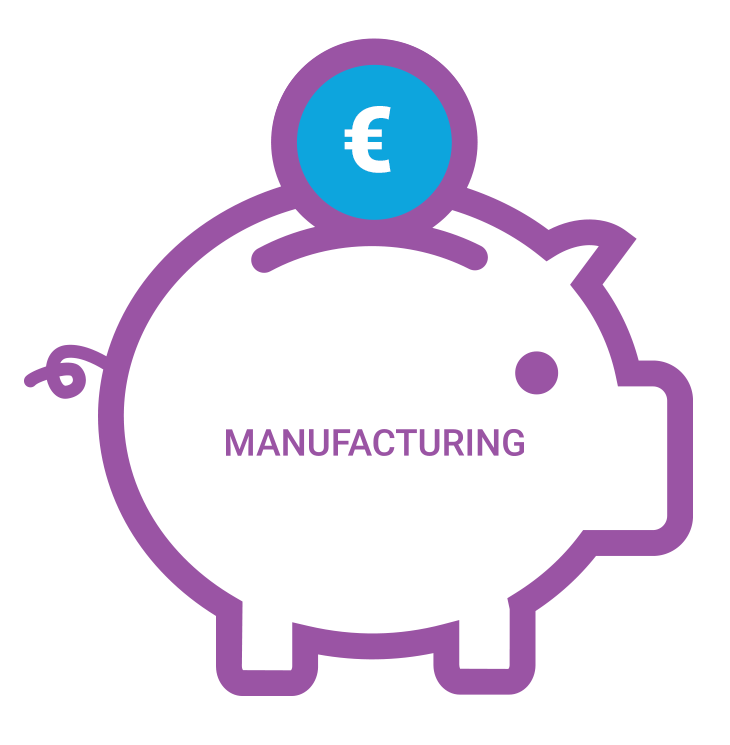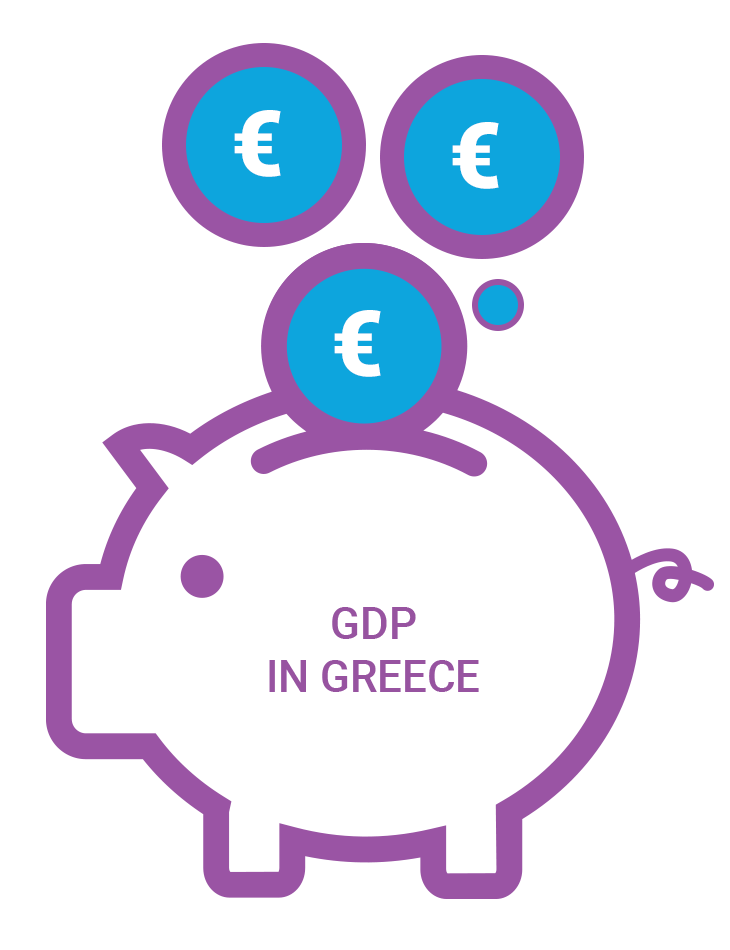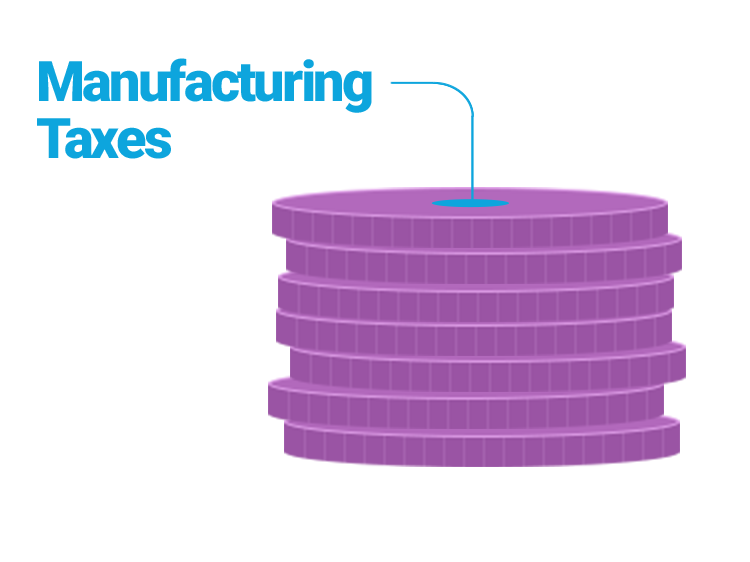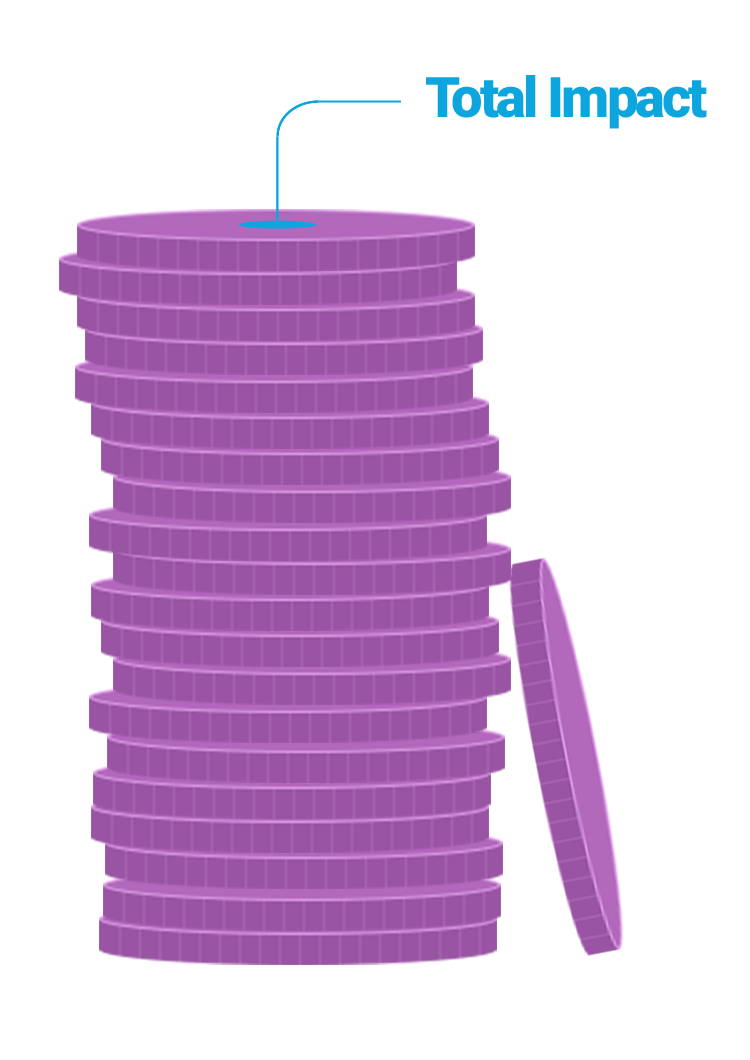FACTS AND FIGURES
Contribution of manufacturing to the economy and society
The manufacturing sector in Greece, despite its smaller share in the economy compared to the European average, still plays a major role and has a considerable impact, both in terms of economic output and social cohesion, due to strong multiplier effects.
Manufacturing at the center
of Europe's development strategy
the contribution of manufacturing
to the EU GDP
the contribution of manufacturing
to the GDP in Greece
The European Union has set itself the objective of increasing the share of manufacturing to 20% of the European GDP by 2020
The impact of manufacturing
on the Greek economy
The overall impact of the manufacturing sector on the country’s GDP exceeds
€55 billion (31%).

added value directly generated
by manufacturing

added in total to
the Greek GDP
Government revenues
The activity of Greek manufacturing contributes
directly and indirectly to the state revenues.

direct contribution of manufacturing
to the state revenues

total contribution of manufacturing
to the state revenues
Manufacturing: A stable investor in the Greek economy.
(in mn €)
The industry has kept its investments
stable during the crisis
The impact of manufacturing
on exports
2008 - 2015
of the country’s exports
are manufactured products
In the last few years
industrial goods
are exported
to more countries
EXPORT DESTINATIONS
The top 5 products in export value are petroleum refining,
food, base metals, chemical products and pharmaceuticals.
The impact of manufacturing
on employment
JOBS
According to a research conducted by the
Foundation for Economic & Industrial Research (IOBE)
CORRESPONDS TO
of total employment
in Greece
EACH
job opening
in manufacturing
RESULTS TO
A TOTAL OF
jobs added to
the economy
Manufacturing:
One of the greatest
employers of the country.
Manufacturing is one of the largest employers in the country, after trade and agriculture and roughly at the same level as hotels and restaurants (ELSTAT, 2nd quarter 2015)
EMPLOYEES
(in ,000)
Manufacturing requires employees
that have greater specialization
while the industry offers stable
working relationships
Manufacturing offers
higher salaries comparing to
other sectors of the economy
of those employed in
manufacturing
are University graduates
The impact of manufacturing
on innovation
The potential impact
of a stronger industry
The share of the Greek manufacturing industry has declined from 11.4% of GDP in 1995 to 8.8% in 2016.
According to a 2017 research conducted by IOBE (Foundation for Economic & Industrial Research), an increase of the manufacturing share to the levels of 1995 (ie to 11.4% of GDP from 8.6% today and compared to an EU average of 15%), would lead to a very significant impact on the Greek economy:
– An increase of GDP by 12.8% (€22.7 billion)
– An increase of employment by 12.7% – more than 500,000 new jobs; 150,000 directly in the industrial sector
– An increase in tax and social system revenue by €4.6 billion per year








